- Home
- News And Events
- What’s Going On
- Ie Business School Alumni Innovating The Fashion Industry
IE Business School Alumni Innovating the Fashion Industry
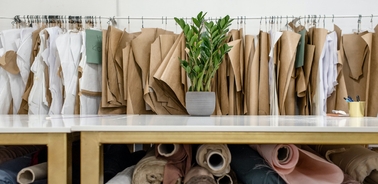
From Middle East giant retailers to boutique menswear and much more IE alumni are innovating the fashion business with sustainable ventures.
When he set up the first internationally successful online platform for professional models and their clients, Master in Management alum Falko Kremp and his co-founders not only disrupted the classic model, but highlighted that talent agencies lacked digital expertise. His startup Inselberg convincingly showed how a largely analog industry could improve with digital know-how.
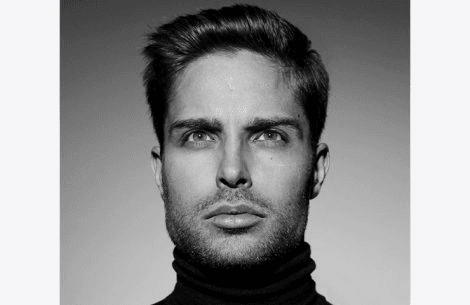 Falko Kremp
Falko Kremp“In the spring of 2015, we developed the concept using our classes and at IE Venture Lab-- where we were accepted to the accelerator program. In summer, we raised an angel round, including business angels from Venture Lab, and incorporated the entity in Berlin,” Kremp explained.
Kremp has since sold Inselberg and is now full-throttle involved in his role as General Manager of Tidal for DACH and DK.
Kremp’s success is eye-catching and speaks to the core values of innovation and entrepreneurship IE fosters. But he also sits in good company with other IE Business School alumni who have pioneered significant change in the world’s fashion industry.
Some have invested themselves in luxury brands-- like Laure de Dampierre (IMBA 2015) Senior Editor and Digital Content Strategist at Louis Vuitton, Michael Strand (IMBA 2020) Manager at Burberry and Mulberry and Damien Duval (IMBA 2010) Chief Operation Officer at Luxurynsight.
But beyond the select brands, the fashion industry is speckled with startups created by the entrepreneurial spirit of IE Business School alumni who are reshaping the fashion industry with sustainable, innovative companies focused on customized textiles, eyewear, jewelry, men’s premium accessories and more.
Here are a few you should check out:
The Seëlk
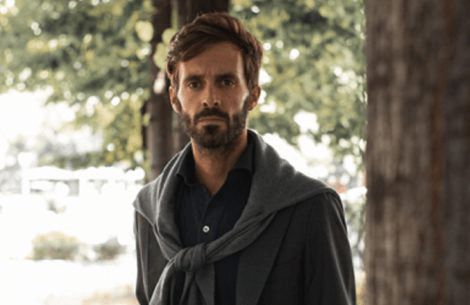 Enrique de Solís
Enrique de SolísEnrique de Solis says studying his International MBA in 2016 at IE was “one of the best decisions of my life.” And it’s where he began to work on The Seëlk, the menswear brand that began as a silk tie brand. “Sophisticatedly simple” is how de Solis describes his brand, which focuses on high quality and design at a reasonable price.
Since launching online, The Seëlk expanded not just in terms of product range, but also launched the first physical store in Madrid. The shop--located in Madrid’s Salamanca neighborhood-- opened in February 2020, just before the pandemic hit Europe. Despite closing for months, de Solis said the year’s balance was very positive, as a result of the brand’s online strength, experience and the customers’ loyalty. In the future, de Solis sees the company opening stores in cities like Berlin, Lisbon and Benelux.
De Solis highlights the sustainability benefits of “fleeing fast fashion and not encouraging compulsive buying with massive collections.” Applying the philosophy of reduce and reuse, The Seëlk looks to be a reference brand for those men who are clear about how they want to dress, with unique products, since all patterns and designs are made in-house.
The IMBA graduate said doing his master course at the same time as planning the launch of the company was key because it allowed him to apply the knowledge in real time.
“We expect to generate synergies between IE and The Seëlk in the near future. In fact, we have been in conversations with IE colleagues to expand the brand throughout LatAm as local partners.”
Enrique de Solis
“The constant feedback from colleagues as well as their knowledge in other aspects was decisive for the growth of the project. We expect to generate synergies between IE and The Seëlk in the near future. In fact, we have been in conversations with IE colleagues to expand the brand throughout LatAm as local partners.”
MerakiLife
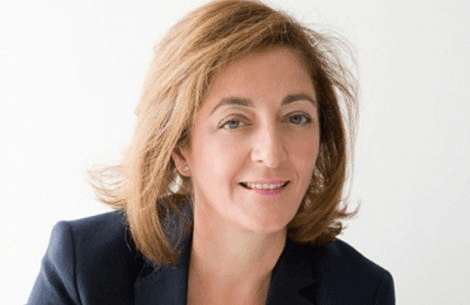 Beatriz González de Dios
Beatriz González de DiosBeatriz Gonzalez de Dios, an MBA alumna, created Merakilife.es, a startup born in 2019 with the aim of bringing art into people’s lives. Gonzalez de Dios describes her brand as a “web gallery,” taking art from museums and putting it in people’s hands in the form of clothing. MerakiLife creates premium clothing collections in natural fabrics-- mostly 100% organic cotton: T-shirts, sweatshirts, bags, masks. The brand features both veteran and emerging artists.
Gonzalez de Dios said the Greek word Meraki, describes doing something with soul, creativity, or love. And that summarizes how she merged her experience in the fashion industry with the passion of democratizing the art experience.
The idea began because Gonzalez de Dios and her co-founder, Esther Rodriguez Gómez felt that art was too often locked up in museums or galleries. Their goal was to make art accessible to people. The company currently has a gallery of six emerging artists-- from Spain, France and Uruguay-- who print their artwork with MerakiLife, as well as more well-known creators like visual-urban artist Misterpiro, recently recognized by Forbes Magazine as one of the most influential young Spanish artists.
The founder said sustainability is key to MerakiLife’s philosophy and process, using organic cotton, grown with less environmental impact and less contamination of pesticides or fertilizers. But beyond the physical product, she said the company focuses on workers’ working conditions, factories that comply with the regulations and that also care about sustainability and innovation.
“I see MerakiLife as an art gallery world where a vast array of artists will be attracted and developed as part of our community. They will be able to show their original artwork that will turn the streets into the most spectacular art gallery world round.”
Beatriz González de Dios
Foreyever
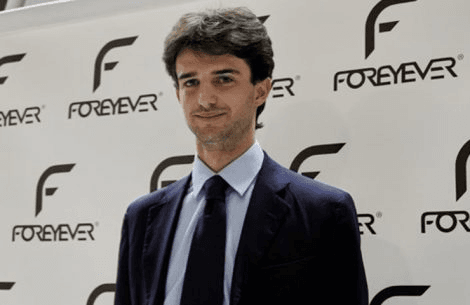 Massimo Martucci
Massimo MartucciIn 2015, Massimo Martucci arrived in Spain to pursue the Master in Management at IE. Shortly after arriving, Martucci was struck by a popular Spanish brand revolutionizing the sunglass industry by offering quality products at a fair price. From that inspiration, Foreyever was born.
However, Foreyever took it a step further by producing sunglasses inspired by street art and made in collaboration with a team of Italian designers with 3D printing technology. In the 5 years since the brand’s launch, Foreyever went from being exclusively online to selling to the best optician stores around Italy and distributing products in Spain, Portugal, Greece, Croatia, Bosnia, Bulgaria, Serbia, Montenegro and Slovenia. In the next five years, Martucci sees Foreyever continuing to push innovation in eyewear.
Martucci credits the practical approach of his classes and IE’s multi-cultural environment-- being surrounded by people with different backgrounds and ideas-- for pushing him to adopt a 360-degree vision, “to create an ideal product for the mass-market.”
“For many projects and group work, my classmates and I worked directly on my new business. In a certain sense, I can therefore say that Foreyever was the product of a mix of cultures, ideas and opinions gathered during my year at IE and that I could not have gathered anywhere else.”
Massimo Martucci
Bombay Sunset
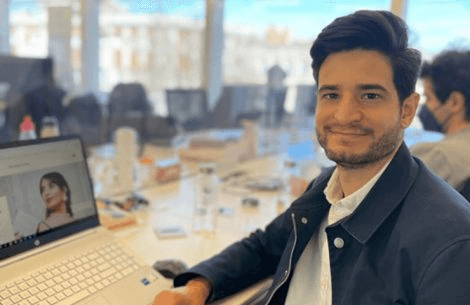 Miguel Hebrero
Miguel HebreroInternational MBA alum Miguel Hebrero founded Bombay Sunset, a brand that makes and distributes premium fashion jewelry inspired by nature. Twice a year, the company presents their collection in Paris and Milan, and distributes its products through varied channels such as drop shipping, affiliates and their own e-commerce site.
Hebrero and his partner, designer Nidhi Patel, used the IE cafeteria to conduct the first product-market-fit experiment. Using a small selection of samples, Hebrero set up a table for people to test the product and provide feedback. Hebrero recounts people gathering around the table and trying on the jewelry pieces. Since then, the company has expanded. In October, Bombay Sunset opened a subsidiary in Germany. The brand postponed a U.S. launch thanks to a surge in demand in Europe. Now, they hope to open the U.S. operation within the next six weeks, which Hebrero calls a “game-changer,” since it will service three of the company’s key markets: US, Mexico and Canada.
Hebrero said sustainability and reaching net zero emissions is at the core of the company’s philosophy. In April, Bombay Sunset will plant Spain’s first forest --300 trees-- financed by a fashion brand in Guadalix de la Sierra (45 kilometers north of Madrid).
“We have put focus on sustainability just because we believe we must adjust our habits urgently.”
Miguel Hebrero
“The consumer isn’t really demanding it and therefore the market is not at a point where we could capitalize on it in economic terms. This year so far, we have already offset 9 tons of CO2 emissions through an independent organization and we will be carbon neutral this year.”
Stitch Easy
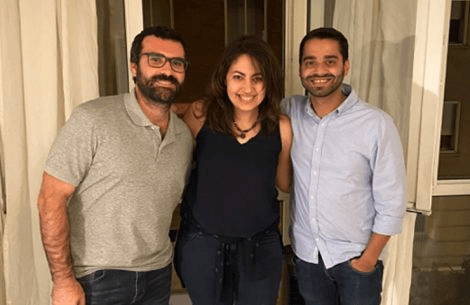 Rana Raouf, Aditya Bajaj and Franco Massa
Rana Raouf, Aditya Bajaj and Franco MassaRana Raouf, Aditya Bajaj and Franco Massa started working on their start-up, Stitch Easy, in one of their classes during the International MBA program. Drawing on their previous experience in the fashion industry, they identified common problems faced by all companies in the industry. They realized that the industry had been lagging behind in regards to technological advancements.
Thus was born Stitch Easy, a market network in the fashion industry that connects fashion brands to sustainable and reliable clothing manufacturers. The company also provides a SaaS product for its users to streamline their operations and provide transparency to the entire production process.
Stitch Easy is designed to help small and medium-sized businesses compete with big market players through democratizing data, AI and technology that they cannot afford on their own.
Sustainability is at the core of the co-founders mindset. They say that brands nowadays are increasingly looking for sustainable manufacturers so they display a sustainability score and promote manufacturers who follow sustainable practices.
“While we want to bring a tech revolution in the fashion industry, we definitely want to help the world's second most polluting industry move towards being a net contributor to the environment,” Raouf said.
Beyond the customer validation, helping small and medium-sized businesses is at the core of the values that motivate the team.
“The gap between SMBs and big brands has been widening in the past years due to many factors, on top of which is how big brands can use technology to lower their costs, forecast the market and become more efficient. Such a technology is very expensive to develop, which has left small and medium brands struggling for their survival. The pandemic has only accelerated the process, but if we don’t help them now it might mean that all these small and medium sized brands and manufacturers will totally cease to exist,” Raouf explained.
In December 2020, the team won second place in IE’s Venture Day. After completing the IMBA, they’ve been working full time on their start up. Currently, the company has a team of nine interns who are Master in Management students at IE.
“If there is one thing that stood out for us during the MBA, it was the focus IE places on entrepreneurship. Throughout the course we had the opportunity to work on developing our ideas and be ready to launch our startup when we graduate,” Bajaj said.
“The Venture Lab was definitely a catalyst for us. It made us ready to face the real world while giving us a safe environment to test our ideas and develop our skills. IE Business School and the Venture Lab in particular helped us take the leap of faith when it mattered.”
Aditya Bajaj
Azadea
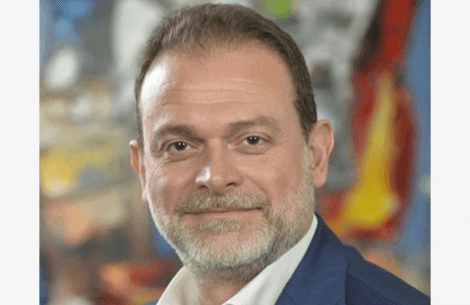 Salim Fakhouri
Salim FakhouriSalim Fakhouri, a Global Executive MBA alumnus has impacted the fashion industry-- though not through launching a startup. As President of the Fashion Division of Azadea Group Holding, Fakhouri spearheads the trendsetting fashion retailer, which handles more than 40 international fashion brands in over 600 stores-- and online-- across 13 countries in the Middle East.
After joining Azadea in 2006 as the Group Financial Controller, Fakhouri held different positions within the company, including establishing the company’s operations in Egypt.
Fakhouri highlights that what differentiates Azadea are the Azadeans, who keep up to date with the industry and market trends, allowing the company to have a very well diversified portfolio of brands as a result.
“We are aware of the transformation of the retail landscape and the evolving consumer trend worldwide. While we continue expanding our foot-print of physical stores, we are rapidly growing our online and digital commerce and capabilities aiming at reaching an integrated business that provides our customers with an omnichannel experience,” Fakhouri said.
Sustainability is key to Azadea’s philosophy, the executive explained. The company’s sustainability goals include zero waste programs, plastic free retailing and eco-efficient stores. The company seeks other companies that align with these goals for partnerships.
“There’s no alternative to sustainable development,” he said. “ We at Azadea, along with all our business partners and franchisors, share the same vision to become the leading regional foundation in empowering communities for sustainable living, providing conscious eco-friendly offerings, and services across all our stores.”
Fakhouri praised IE’s GXMBA for its ability to allow students to seamlessly balance classes and work and benefit from “the two-way-learning between workplace and school.”
“IE Business School helped me in confidently shaping my leadership abilities by improving my analytical and critical thinking, and communication skills. The interaction with classmates and cohorts who come from different cultures and industry was a great added value to me.”
Salim Fakhouri
Textilo
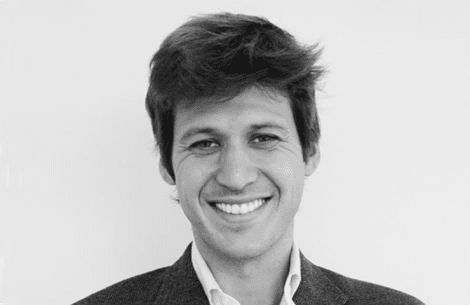 Juan Chacón
Juan ChacónMaster in Management alumnus Juan Chacón co-founded Textilo, a company that specializes in textile customization and merchandising. Co-founder Carlos Nebreda started the company at home with a small embroidery machine, customizing clothes for people. Chacón saw the potential and hopped on board. Textilo now focuses on corporate clients, differentiating thanks to its speed of delivery and personalized service.
According to Chacón, during the pandemic, the company has grown and taken on more clients. The entrepreneur credits Textilo’s online positioning and web platform for reaching new clients and giving the company a competitive advantage. But, the ability to adapt and create new niches-- like customized Covid-tested masks-- has helped the company turn the challenges of the past year to its advantage. The masks alone accounted for 40 percent of last year’s turnover.
“Thanks to the masks we have been able to start with large customers and grow within them, offering them uniforms and other complements. Our goal is to grow again 100% -- as we do every year,” the MIM alum said.
For Chacón the most rewarding part about working in Textilo is seeing the company grow and learning each day from his co-workers, some of which are IE alumni too. Chacón said IE networking has been key to the expansion of his startup. Not only did he meet Nebreda through IE contacts, Textilo has just reached an agreement to grow in the Valencia region thanks to alumni networking.
“Thanks to IE, I got the right people to develop the project and it has given me an overview of how to develop my business. I believe that in the long term my training during this year will be fundamental.”
Juan Chacón
Citing premium online positioning, Chacón anticipates significant growth during the five years, turning Textilo into the reference company for personalization in Spain.